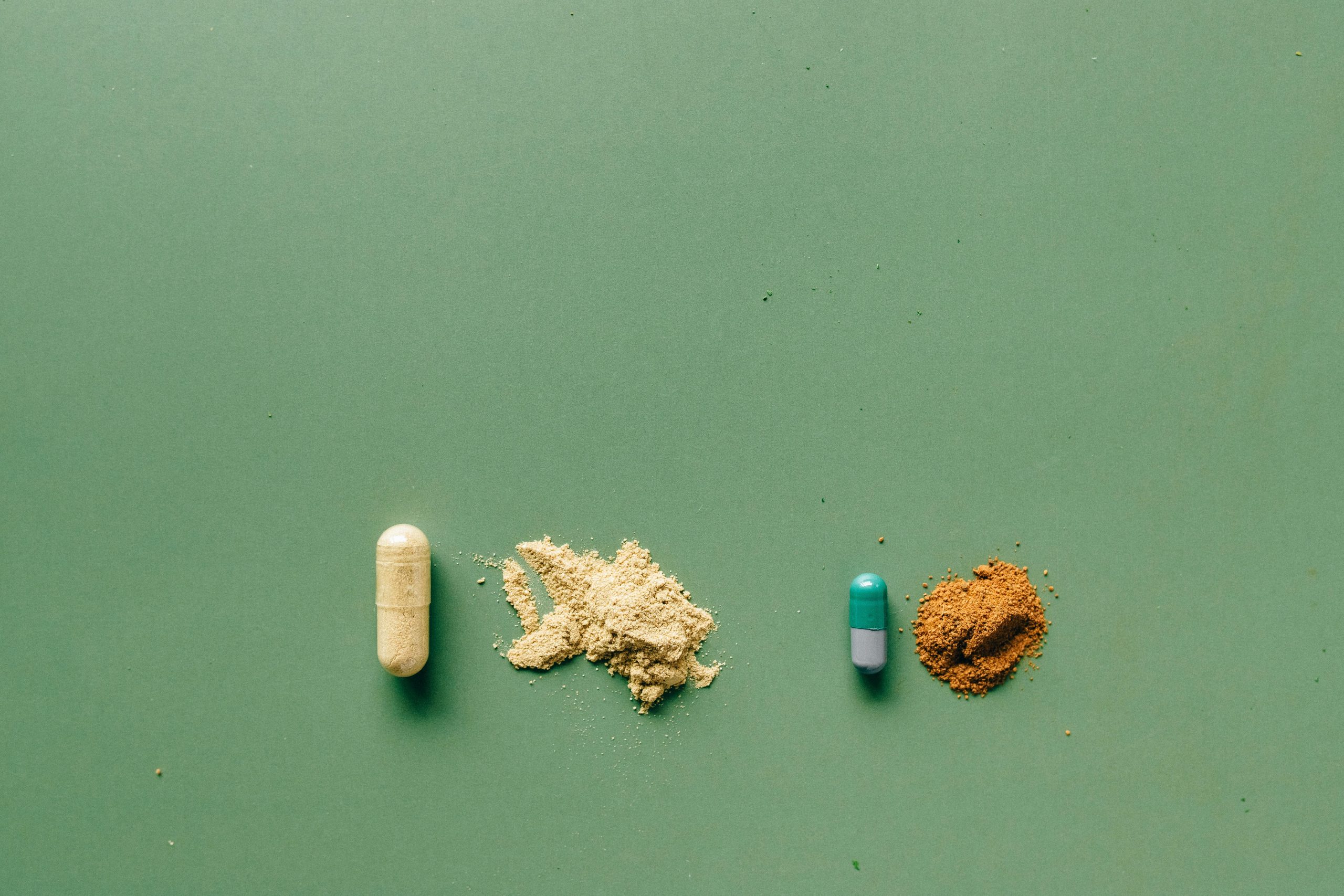The Small Dose Approach to Boosting Mood & Focus
In a world where “more” often feels like the answer, science is showing us that less can be surprisingly effective—especially when it comes to boosting mood and sharpening focus. The small dose approach is about introducing tiny, controlled amounts of beneficial activities, nutrients, or habits into your daily life to create lasting mental health benefits without the overwhelm.
This philosophy is gaining traction among mental wellness advocates, biohackers, and productivity experts because it’s sustainable, safe, and surprisingly powerful.
Understanding the Small Dose Approach
What It Means in Wellness
The small dose approach involves introducing minimal yet consistent inputs—whether that’s a supplement, a mindfulness practice, or a lifestyle habit—into your daily routine. The goal isn’t an instant transformation, but gradual, measurable improvement.
Science Behind Small Doses
Small, consistent changes work with your body’s natural rhythms. Instead of shocking the system with high doses, you allow your brain chemistry, hormones, and nervous system to adjust naturally. Research on habit formation shows that incremental changes are easier to maintain and produce more sustainable results.
How It Differs from Traditional Dosing
Traditional wellness programs often involve large, immediate changes—new diets, intense workouts, or high supplement dosages. While effective for some, they can lead to burnout. The small dose approach focuses on low effort, high consistency.
How Small Doses Boost Mood
Neurochemical Balance
Tiny, steady boosts—whether from nutrition, light exposure, or mild activity—can help maintain optimal serotonin and dopamine levels, both linked to positive mood.
Reducing Mental Fatigue
Small steps prevent the mental exhaustion that often follows big lifestyle changes, keeping motivation intact.
Building Emotional Resilience
By lowering stressors and avoiding overwhelm, small changes give your emotional regulation system time to adapt, improving resilience.
How Small Doses Improve Focus
Managing Cognitive Load
Your brain has a limited capacity for processing information at any given time—this is known as cognitive load. When you try to cram too much in, mental fatigue sets in, leading to distraction and mistakes. By breaking tasks into smaller, more digestible steps, you’re essentially giving your brain “bite-sized” pieces to work with.
For example, instead of trying to read and understand a 50-page report in one sitting, read 5 pages, take a short break, then continue. This prevents overload, keeps your mental energy steady, and helps you maintain focus for longer periods without burning out.
Supporting Brain Health
Your brain thrives when it’s well-nourished and well-rested. Small doses of healthy habits—like taking micro-interval breaks (1–5 minutes every hour), eating nutrient-rich snacks such as nuts or berries, and doing light physical activity like a short walk—improve blood flow and oxygen delivery to brain cells.
Even standing up and stretching can refresh neural activity, helping you return to work with a clearer mind. Over time, these small actions can protect cognitive function and enhance mental stamina.
Sharpening Short-Term Memory
Memory works like a muscle—it strengthens with regular, moderate exercise. Research shows that frequent, low-intensity learning sessions help reinforce neural pathways, making it easier to recall information later. This is why studying for 15 minutes each day is often more effective than a 3-hour cram session.
By repeating information in short bursts, you give your brain time to encode it into short-term memory, and with enough repetition, it transitions to long-term storage. This approach is especially useful for skill-building, language learning, or preparing for presentations.
Table: Small Dose Actions to Boost Mood & Focus
| Small Dose Action | Primary Benefit | How to Apply It |
|---|---|---|
| Add one nutrient-rich food | Supports brain health, stabilizes energy | Toss blueberries into breakfast or add spinach to a smoothie |
| 3–5 minute mindfulness break | Reduces stress, clears mental clutter | Close your eyes, breathe deeply, and focus on slow, steady breaths |
| 10-minute walk | Improves blood flow, boosts mental alertness | Take a short walk after lunch or during a coffee break |
| Swap one sugary drink for water | Enhances hydration, prevents energy crashes | Infuse water with lemon or cucumber for flavor |
| Read one page daily | Improves focus, builds knowledge over time | Keep a book on your desk and read a page before checking your phone in the morning |
| 15-minute screen time cut before bed | Supports better sleep quality | Replace late scrolling with light stretching or journaling |
Practical Ways to Apply the Small Dose Approach
Small Dose Nutrition
Making changes to your diet doesn’t have to mean throwing out your pantry or following an intense meal plan. Instead, start with one small, nutrient-rich upgrade to your day. For instance, toss a handful of blueberries or walnuts into your morning oatmeal, or swap a sugary soda for sparkling water with a splash of lemon.
These small, consistent changes can help balance blood sugar, stabilize energy levels, and support brain health—without the stress of a total dietary overhaul. Over time, you can stack these micro-swaps to transform your nutrition naturally.
Mindfulness in Micro-Intervals
Mindfulness doesn’t have to be an hour-long meditation in a quiet room—it can be as short as a 3–5 minute breathing break between tasks. Simply close your eyes, inhale deeply through your nose for four seconds, hold for four seconds, then exhale slowly.
These micro-moments help calm your nervous system, clear mental clutter, and improve your ability to focus on the task at hand. Even two or three of these short sessions each day can noticeably lower stress and increase mental clarity.
Gradual Lifestyle Tweaks
Small lifestyle adjustments can lead to big improvements in mood and focus when practiced consistently. Start with tiny, achievable changes:
Take a 10-minute walk during your lunch break to get fresh air and increase blood circulation to your brain.
Reduce screen time before bed by just 15 minutes to improve sleep quality, which directly impacts cognitive performance the next day.
Read one page of a book each morning instead of scrolling through your phone—over time, that’s an entire book completed with minimal effort.
By making these adjustments one at a time, you avoid the overwhelm of big commitments while still moving steadily toward better mental health and productivity.
Potential Risks and Considerations
1. Consistency is Key
The microdosing approach relies on regular, steady effort. Doing a healthy action only once in a while—like meditating once a week or eating vegetables sporadically—won’t create lasting results. Think of it like watering a plant: irregular watering leads to weak growth, while consistent care helps it thrive. Set realistic habits you can stick to daily or several times a week to see measurable improvements.
2. Medical Conditions May Require Clearance
Even small lifestyle changes can interact with certain health conditions or medications. For example, someone with low blood pressure may need to be cautious with prolonged breathing exercises, or a person on certain medications may have dietary restrictions. If you have a chronic condition, are pregnant, or are on prescription medication, it’s best to consult a doctor or qualified health professional before making adjustments—especially with supplements or physical activity.
3. Not a Quick Fix
The benefits of the small dose approach develop gradually. While you might notice small improvements in mood or focus within a couple of weeks, significant and lasting changes usually take 4–8 weeks or more. If you expect instant results, you may feel discouraged and quit too soon. The key is to view this as a long-term investment—tiny actions compound over time, just like regular deposits in a savings account.
Important Questions and Answers
1. What exactly is the small dose approach, and how does it work?
The small dose approach is a wellness strategy focused on making minimal but consistent changes to improve mood, focus, and overall health. Instead of overhauling your lifestyle overnight, you make micro-adjustments—like adding one nutrient-rich food to your diet or taking a short daily walk—that your brain and body can easily adapt to. Over time, these small steps compound, leading to significant and lasting results without the stress or burnout of drastic changes.
2. How long does it take to see benefits from small doses?
Many people report subtle improvements in energy levels and mental clarity within 1–2 weeks, especially when changes are done daily. More noticeable shifts in mood, focus, and productivity often occur after 4–6 weeks of consistent effort. The key is patience—small doses work like steady investments in your health, gradually building results that last longer than quick fixes.
3. Can the small dose approach replace traditional mental health treatments?
No. While the small dose approach can be a powerful complement to mental health care, it should not replace professional treatments for conditions like depression, anxiety, or ADHD. It works best alongside evidence-based approaches such as therapy, medication (if prescribed), or structured wellness programs.
Always consult a healthcare provider before making significant lifestyle changes, especially if you have a diagnosed mental health condition.
4. What are some simple examples I can start with today?
You can start right now with a few easy habits:
Replace your afternoon coffee with green tea for a gentler energy boost.
Take a 5-minute stretch break between meetings.
Swap one processed snack for a handful of nuts or fruit.
Spend 3 minutes in mindful breathing after lunch to reset your focus.
Reduce bedtime screen time by 10–15 minutes to improve sleep quality.
5. Why are small changes more effective than big ones for focus and mood?
Small changes are easier for your brain to accept and sustain because they don’t overwhelm your mental or physical systems. Big lifestyle overhauls often trigger resistance, fatigue, and eventual relapse into old habits. Small doses, on the other hand, allow for gradual adaptation, making it more likely you’ll stick to the changes long-term—and that consistency is what drives real results in mood and focus.
The Big Results of Going Small
The small dose approach shows that you don’t need massive changes to create meaningful results. By making minimal, consistent adjustments—like adding a nutrient-rich snack, taking short mindful breaks, or reducing screen time—you gradually train your brain and body to function at their best.
These micro-habits compound over time, helping you boost mood, sharpen focus, and create sustainable routines that support mental clarity and emotional well-being. The beauty of this method is its simplicity: start small, stay consistent, and watch those tiny steps transform into lifelong benefits.







